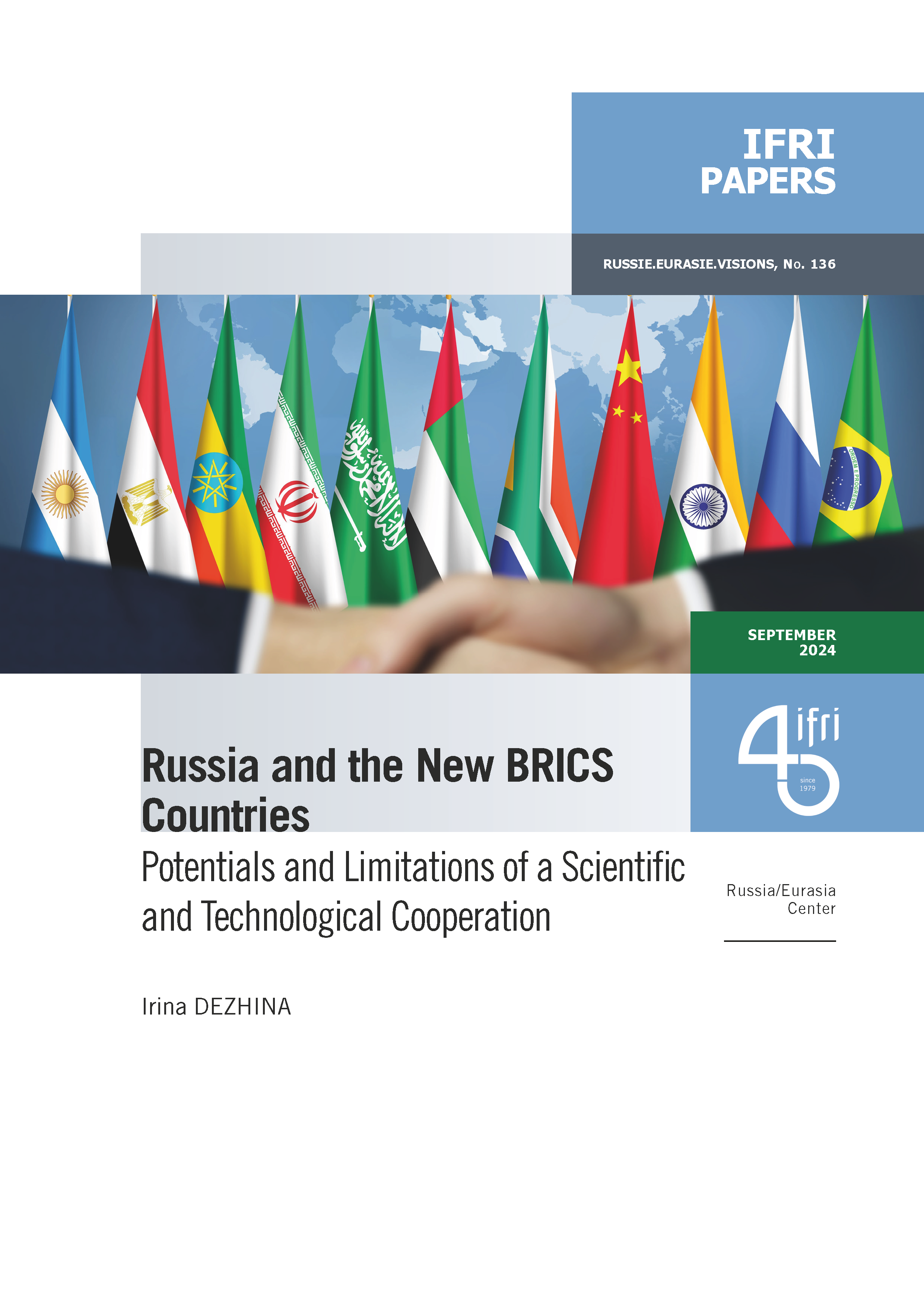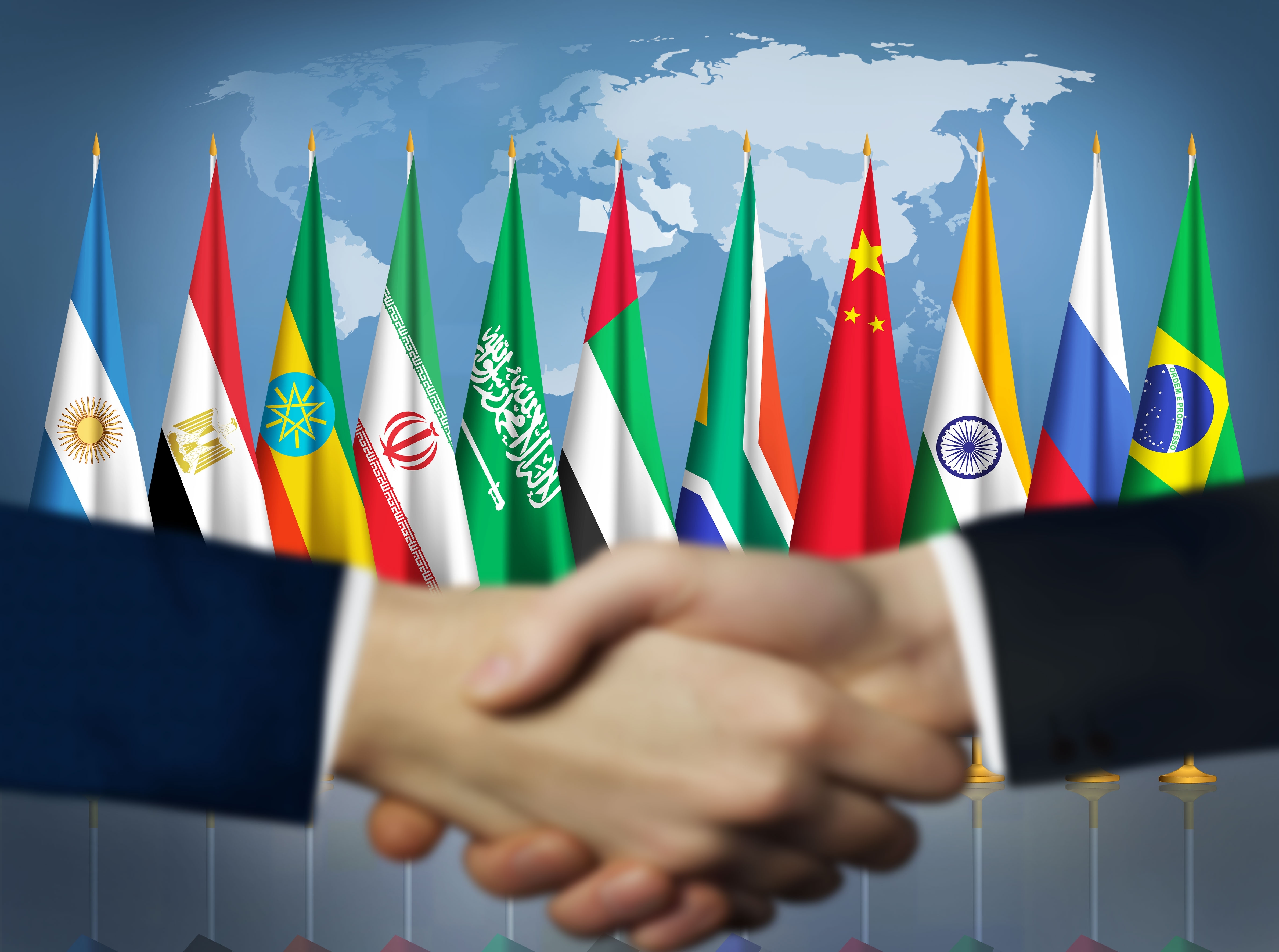Russia and the New BRICS Countries: Potentials and Limitations of a Scientific and Technological Cooperation

At the fifteenth BRICS summit, held in Johannesburg, South Africa, from August 22 to 24, 2023, a resolution was adopted to extend an invitation to six new countries to join the organization: Argentina, Egypt, Ethiopia, Iran, Saudi Arabia, and the United Arab Emirates (UAE). All of these countries except Argentina duly became members of BRICS in 2024, with the expanded group known as BRICS+. In addition to the political and economic advantages, it is assumed that the incorporation of these new countries could potentially facilitate their scientific and technological development.

From a legal and regulatory standpoint, however, BRICS is considered to be an informal forum, with no common rules or regulations. Indeed, studies of BRICS have identified regulatory inconsistencies as a problem in science and technology. Moreover, productive cooperation between the BRICS countries is being hampered by the use of different languages, divergent levels of funding, and a general diversity of interests in the sector. Although the group has now been in existence for 13 years, analysts are still emphasizing the need to select the most promising areas of priority research to be developed for the benefit of all BRICS countries while promoting educational and scientific mobility and boosting the research capacities of member states. It will be increasingly difficult to reconcile the various interests of the new countries, as they are more heterogeneous both in their levels of economic development and in their scientific and technological capacity. Nevertheless, the BRICS+ platform could serve as a catalyst for new “paired” links.
Irina Dezhina is a visiting scholar at Stanford University, USA, Center for Russian, East European and Eurasian Studies. She has over 30 years of research and consulting experience in science policy in post-Soviet Russia, Russian technology and innovation policy. She received her Ph.D. in Economics from the Institute of National Forecasting, Russian Academy of Sciences (1992), and her D.Sc. in Economics from the Institute of World Economy and International Relations, Russian Academy of Sciences (2007), Moscow, Russia.
Her recent publications include “Russia’s Science Policy, 2018-2022: Mixed Signals”, Social Sciences, 2023, 54(3), and “The Impact of Sanctions on Highly Productive Russian Scientists”, Sotsiologicheskie issledovaniya, 2023, 12 (co-authored with A. Nefedova).

Available in:
Themes and regions
ISBN / ISSN
Share
Download the full analysis
This page contains only a summary of our work. If you would like to have access to all the information from our research on the subject, you can download the full version in PDF format.
Russia and the New BRICS Countries: Potentials and Limitations of a Scientific and Technological Cooperation
Related centers and programs
Discover our other research centers and programsFind out more
Discover all our analysesThe Caspian Sea as an Emerging Energy Hub : Potentials and Limitations
This report analyzes the prospects of the Caspian Sea region — and its key actors except for Russia and Iran — becoming an important energy hub serving the needs of the European Union (EU).
The European Union's Strategic Test in Georgia
The political crisis brewing in Georgia is of an existential nature for the country. What is at stake is Georgia's future as a democratic and sovereign European nation (EU).
Commanders of Putin's Long War: Purged, Reshuffled and Disgruntled
The trend of reshuffling the Russian top military command in the course of a fast-evolving and far from successful war has progressed unevenly both across the Armed Forces’ structures and in time. The rationale for and timing of the abrupt cadre decisions made by Commander-in-Chief Putin often defy logical explanation, and the rare official clarifications are no more informative than the usual information blackout.
Russian Military Manpower After Two and a Half Years of War in Ukraine
In addition to a military victory in Ukraine, the Russian leadership is planning to build up sizable troop formations for a possible conflict with NATO in the Baltic region and the Kola Peninsula. In particular, current plans aim for the military manpower to grow by about 350,000, reaching a total of 1.5 million soldiers and commanders. In the context of the current conflict in Ukraine, this cannot be accomplished without a new wave of mass mobilization.









